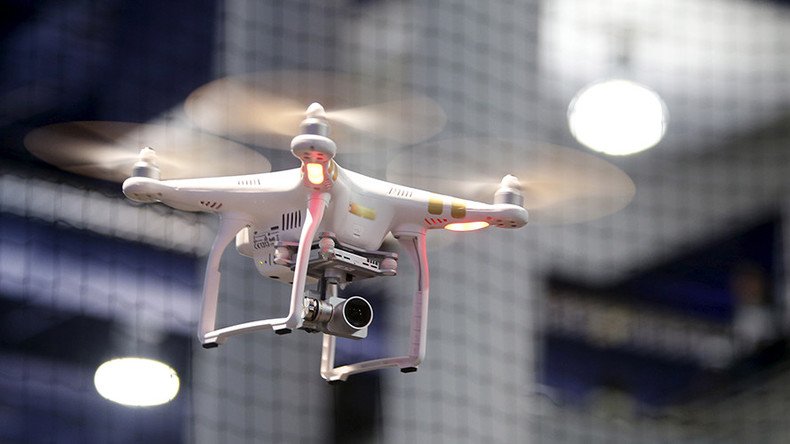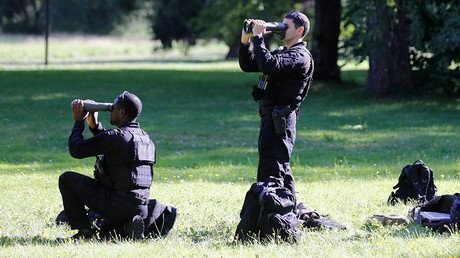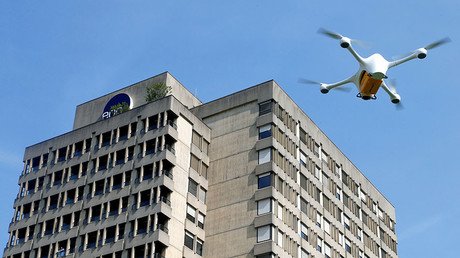US police push for all civilian drones to be registered & tracked

Law enforcement in the US wants to be able to identify and track all unmanned vehicles in the sky. Meanwhile, the military was given the green light to shoot down private drones.
American law enforcement agencies oppose the government’s plans to allow extensive unmanned flights until federal regulators come up with requirements for the drones to be registered and tracked.
They say the tracking is needed to prevent collisions with aircraft that provide vital public services, such as an air-ambulance helicopter.
“Unfortunately, I’ve just begun to see these happening on a regular basis,” California’s Alameda County Deputy Sheriff Richard Hassna told Bloomberg. “I think it’s going to get worse and cause a problem.”
The sheriff deputy was directing firefighters with a drone-mounted video camera at a recent apartment blaze in Oakland, California, when a civilian quadcopter buzzed onto the scene and interfered with their work, he said.
Deputy Sheriff Hassna also said he’s worried that terrorists could turn a drone into a weapon.
On Monday, the Pentagon said that 130 military bases across the United States were given permission to shoot down private and commercial drones that could endanger aviation safety or pose other threats.
“The increase of commercial and private drones in the United States has raised our concerns with regards to the safety and security of our installations, aviation safety and the safety of people,” Pentagon spokesman Jeff Davis stated.
In April, drone flights over 133 US military facilities were banned due to security concerns.
The Federal Aviation Administration is now working on requirements that would give a police officer on the ground the identity of a drone’s operator, as well as the drone’s location, so police or traditional aircraft could monitor its path.
However, the regulations have yet to be finalized.
To craft them, the FAA created an advisory panel of more than 70 drone industry and user representatives in June, including large commercial operators such as Amazon and Alphabet which see delivery drones as the future of e-commerce.
Both said they don’t mind drones being registered and tracked.
The same cannot be said about the Drone User Group Network, members of which believe it would violate their privacy.
“I don’t want to be tracked everywhere,” Kenji Sugahara, the advocacy group’s policy director, told Bloomberg. He also owns companies that fly drones for farmers and filmmakers. “People are very worried about their personal privacy,” said Sugahara.
In May, a US federal court shut down the FAA’s rule that required non-commercial drones be registered, deciding that the FAA did not have “the statutory authority to issue the Registration Rule” and require the plaintiff - a drone enthusiast who brought the case against the agency - to register.
The three-judge panel of the US Court of Appeals for the District of Columbia Circuit argued that the agency was barred from imposing new regulations on “model aircraft” due to a law that was passed by Congress and signed by former President Barack Obama in 2012.
The court said the FAA violated the FAA Modernization and Reform Act of 2012, which states that the agency “may not promulgate any rule or regulation regarding a model aircraft” so long as that aircraft is less than 55 pounds and only used recreationally.
Both the House and Senate now have pending legislation that would reinstate a drone registry.
The law that the court said bars the FAA from enforcing their registration system is set to expire in September.
The FAA estimates that around 2.3 million drones will be sold this year and another 13 million will be sold by 2020.














